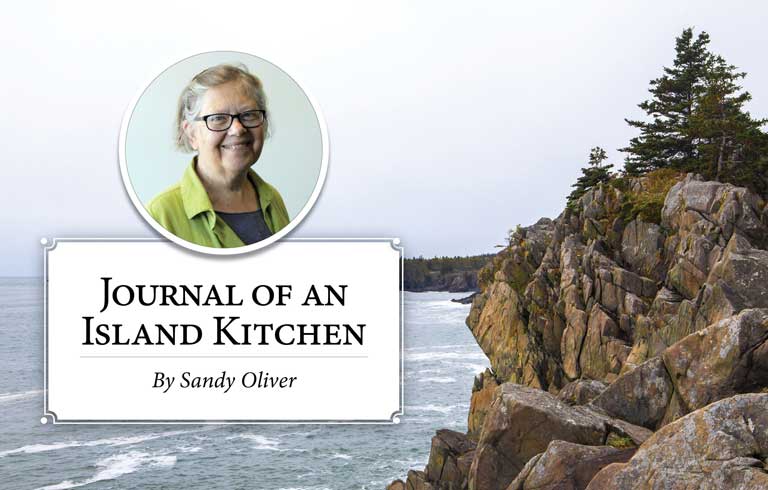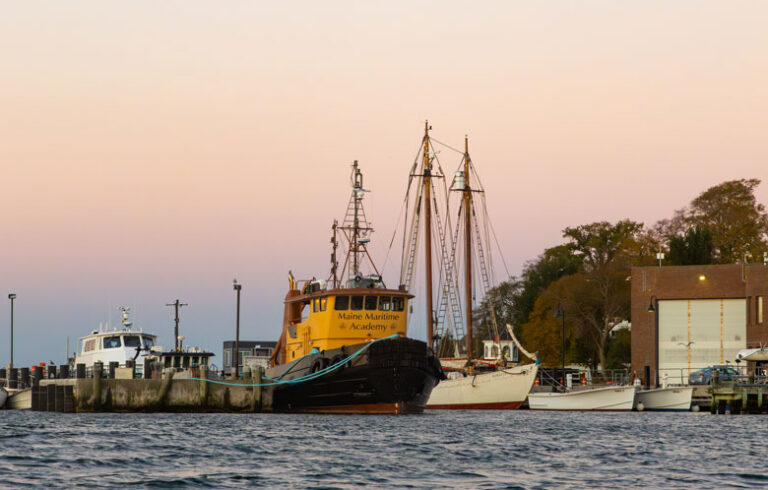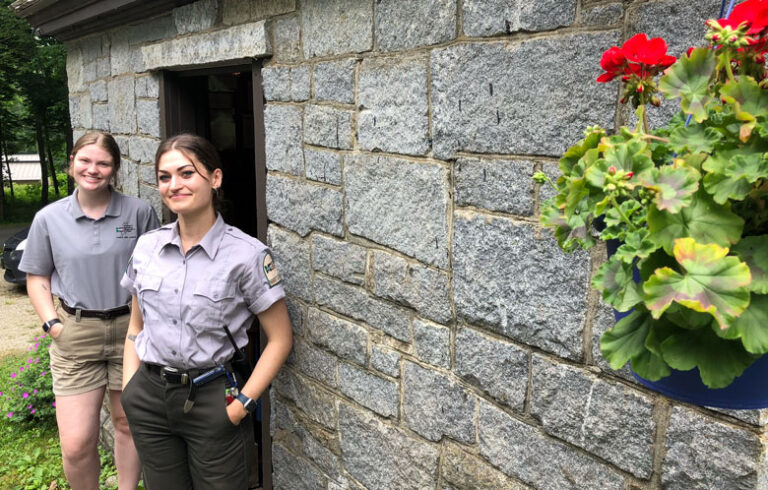Seeking convenience almost always sacrifices connection, something pointed out to me by my wise niece, Sarah. By that standard, I have a very connected kitchen.
For instance, no dishwasher occupies space here. Sarah, and occasionally our young friend and occasional co-habitant Brynn and I wash dishes. I love being connected to those two dear people and I actually like washing dishes by hand.
I do this in an iron (and therefore occasionally rusty) sink placed under a window by Capt. Emery Bunker probably in 1889 when he renovated the house and connected it to the barn. It was a progressive thing to do in his time and daylight floods the area in summer when the sun moves northward.
I do this in an iron sink placed under a window by Capt. Emery Bunker probably in 1889…
Right next to the sink, there used to be a handpump which drew water from a well beneath that corner of the kitchen, replaced probably in the early ‘40s by the summer people who owned this house and opted for a drilled well.
When we moved in, we added a hot water tap connected to a water heater because I didn’t want to be that connected to the process of heating water on a stove for dish washing, laundry, and bathing.
Just outside the window I watch a birch tree progress through the seasons, from the brilliant green new leaves in May through the magical week in October when it turns yellow and fills the kitchen with golden light. In winter, I see snow accumulate along the branches, a soothing sight.
Once as I stood at the window, a barred owl perched on a branch of the tree only a few yards away from me. We stared at each other for a long time until the owl tired of the view and swooped away to the west.
My view as I wash dishes keeps me connected to nature outside, the change of seasons and weather, and I often think of Aunt Annie Bunker, the captain’s wife, standing in the very same spot, washing her dishes.
In fact, the zinc-covered counter to the left of the sink, another inconvenience, keeps me connected to Annie and the past. Zinc corrodes easily: a grain of salt creates a puddle in humid weather, roughing a spot. Somehow zinc accumulates greasy dirt a bit too readily. I wipe it with a hot soapy scrubby, and then buff it with a flannel rag until it shines and feels smooth as silk. On zinc, unlike granite, a dropped coffee cup more often bounces than shatters.
Some time ago, wanting to make cucumber relish, I clamped my mom’s old hand operated grinder to the first spot along the counter where the clamp would fit. I doubt I noticed it right away but eventually I realized that a series of dents in the zinc were created by the clamp and matched ones that had been there a long time.
That’s when I realized Annie Bunker had clamped her grinder to the very same spot. I felt a surge of kinship with the woman who had worked in this kitchen just as I do, a connection lost if I used a food processor. The connection with her over time reminded me that we humans aren’t so different at the core, though our fashions, manners, and language might change. (Imagine poor Annie trying to navigate words beginning these days with “e” or “cyber.”)
Plus the past is full of good ideas and technologies, useful recipes, and deep wisdom about things we haven’t a clue.
Now probably close to 90 years old, my kitchen stove, somewhat inconveniently requiring kindling, firewood, and damper management, is a master at slow cooking, making perfect sense of steamed brown bread, baked beans, and long simmered soups and stews.
Cold when I get up in the morning, and gradually heating the kitchen as the blaze burns in the firebox, my stove reminds me how grateful I am for warmth. I don’t have to rely on mechanical functions and experts who keep convenient, but to me, incomprehensible furnaces running. My stove and I are connected directly, daily.
Imagine how thrilled I was (as well as astonished) when Brynn showed up with a tattoo on her upper arm of my kitchen stove, which now connects it to the future. I imagine her grandchild pointing to the tattoo sometime in 2072 and asking, “Grammy, what is that thing on your arm?” That’s when a bit of knowledge about an even more distant, and somewhat inconvenient past, will connect a child of the future to our time.
Sandy Oliver is a food historian who gardens, cooks, and writes on Islesboro.





